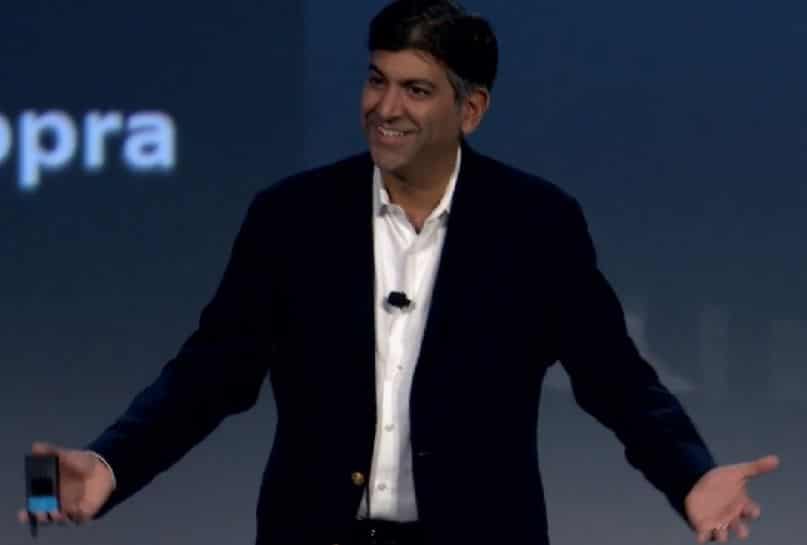Could Artificial Intelligence Have Been Used to Predict the COVID-19 Pandemic?

WASHINGTON – The United States’ former chief technology officer and a top regulatory policy official from Johnson & Johnson spoke at a Bipartisan Policy Center virtual briefing Tuesday morning about how artificial intelligence (AI) could be used to predict or mitigate pandemics.
Given proper guidelines, panelists said AI technology should be allowed to drive innovations in energy, manufacturing, and health.
“We need to start thinking about rapid learning, and that’s the nature of AI,” said Aneesh Chopra, former CTO of the U.S. under President Barack Obama.
“Our current CTO did what you would need to have happen in a moment like this, and that’s to release data. Early on [in the COVID-19 pandemic], the CTO released data sets and research articles that are historically accessible only through paywalls.”
This allowed researchers to share information that led to models for government and private sector response to the health crisis. But while releasing this data allowed many to make hypotheses to test, few lack the computing power to address variables that drive important resource allocation decisions.
“We just spent a decade digitizing the public health system, but clearly our electronic health records program fell short because it wasn’t optimized,” Chopra said.
He recommended putting “public health first when it comes to using data” and interoperability rules that allow for more democratized computing capabilities.
Johnson& Johnson’s Director of Global and Regulatory Policy Carla Cartwright said access to data made it possible for the company to identify best targets for its COVID-19 vaccine research.
“We use AI for drug development and discovery. Identifying the best targets, and speeding up the way targets are intercepted, it all hinges on having the data to facilitate the use of AI.”
From monitoring clinical trials to identifying clinical trial red flags, calculating trial feasibility, patient monitoring, and even recruitment consent, AI allows for harmonization of effort.
Cartwright hopes that one day AI can be used to relieve the burden that the current lack of digitalization places on frontline healthcare workers. Yet she stressed that no discussion of data and AI, especially for health care data, could be complete without a consideration of data ethics.
“AI will look different in health care versus finance and other different sectors,” she said, relaying her optimism about the future of AI as it relates to patient-centered healthcare.
“Ethics are critical and we need a holistic approach to dealing with these challenges… and how we’re even defining what health care data is. So much is captured on your watch or your phone. There are all kinds of data out there that we could have used if we had access to it.”
























